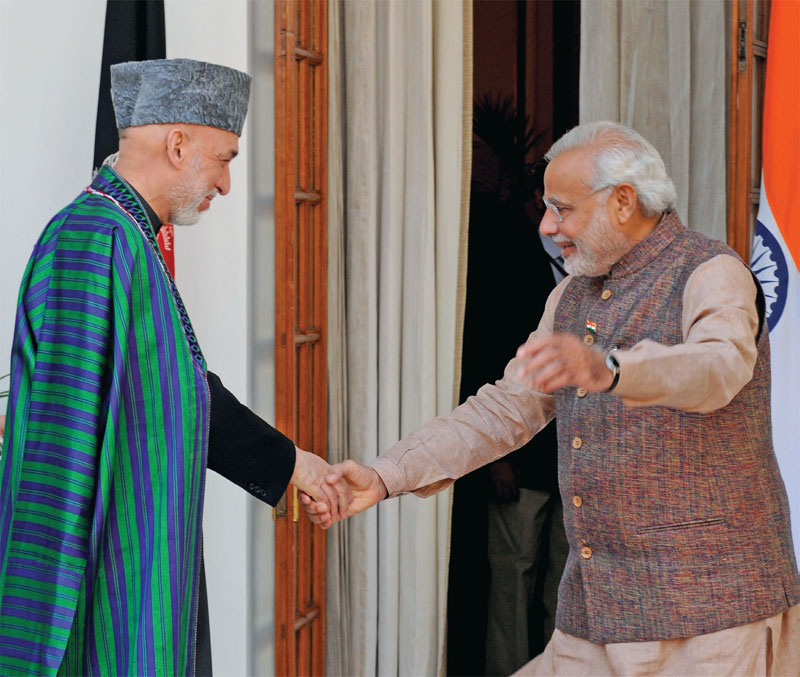Once the new government is formed in Afghanistan, India must engage with it
 S.K. Sood
S.K. Sood
It is almost a fortnight since Taliban took control of Afghanistan after the withdrawal of the US forces. The commentators are having a field day either denouncing the takeover because the Taliban are a terrorist group or telling the world to adopt a wait and watch approach as they are reformed.
A tweet by Ghazala Wahab that Taliban has a legitimate stake in Afghanistan drew a lot of attention of trolls for her unconventional view. I personally find this view rational irrespective of the fact that Taliban is a declared terrorist organisation. The involvement of the Taliban in not only sheltering the 9/11 terror attack’s master-mind Osama bin Laden in Afghanistan but refusing to give him up to the US despite warnings is no secret.
It is widely believed that the US had financed and armed Taliban in cahoots with Pakistan to fight their proxy battle in Afghanistan to force Russians out. Taliban were thus helped into power by those very international players against whom it went rogue in early this century compelling the US to send their forces and throw them out of power after they had ruled Afghanistan from 1996 till 2001. It is a fact that the known views of the Taliban about women and education are regressive. However, their utterances since their return to power appear much sober.
The US can never be a true ally of anyone. It has its own interpretation of ‘national interest’. It has a history of helping rogue regimes until its interests are served only to ditch them once their usefulness has reached the expiry date. They did this with regimes in Iraq and Libya amongst others. This is what they have apparently done in Afghanistan too. They created Taliban, then treated them as pariah and later when they found that continuance in Afghanistan had become untenable, they started negotiating with them.
By talking with the Taliban in Doha and reaching an agreement for peaceful transition of power, the US granted legitimacy to them. In fact, they effectively delegitimised the then Afghan government by directly talking to the Taliban. The US gave a clear message that the then Afghan government was too weak and therefore did not involve them in the peace talks.
Anticipating a Taliban victory, Russia has also been involved in talks with them for the last many years. It had planned in advance for the eventuality of Taliban takeover. It regarded ‘exchanges with the Taliban essential for international efforts to stabilise Afghanistan’. Russia is one the few countries which has not evacuated its diplomats after the Taliban takeover. Rather, the Russian ambassador met with the Taliban immediately after the takeover for what he described as ‘constructive’ talks.
The Chinese involvement in talks with the Taliban was considered a ‘positive thing’ even by the US. Besides hosting a Taliban delegation on July 28, just about a fortnight before fall of Kabul, the Chinese had also hosted them in 2019. Beijing had all along maintained links with Taliban via Pakistan. Even India entered into back-channel communications with the Taliban according to a July 7 report in Al Jazeera. Further, news portal The Print reported that India may also be planning direct talks with them.

Thus, the stake and influence of Taliban in the future of Afghanistan is established beyond doubt. The US wishes to get out of the quagmire of its own creation. The blasts at the Kabul airport on August 26 are likely to further hasten the process. Russia wants a stable Afghanistan so that its territory is not used against Russia. Taliban spokesman Mohammad Sohail Shaheen said during a visit to Russia on July 21, that ‘We won’t allow anyone to use the Afghan territory to attack Russia (or neighbouring countries).’ He also said, ‘We have very good relations with Russia.’
China too has plenty at stake in a stable Afghanistan. The success of China’s BRI depends on the stability of Afghanistan as it provides the shortest route to the Middle East, Persian Gulf and the Arabian sea. Afghanistan too gains by development of infrastructure. An unstable Afghanistan besides threatening the BRI will also have an adverse impact on China-Pakistan Economic Corridor (CPEC).
You must be logged in to view this content.

